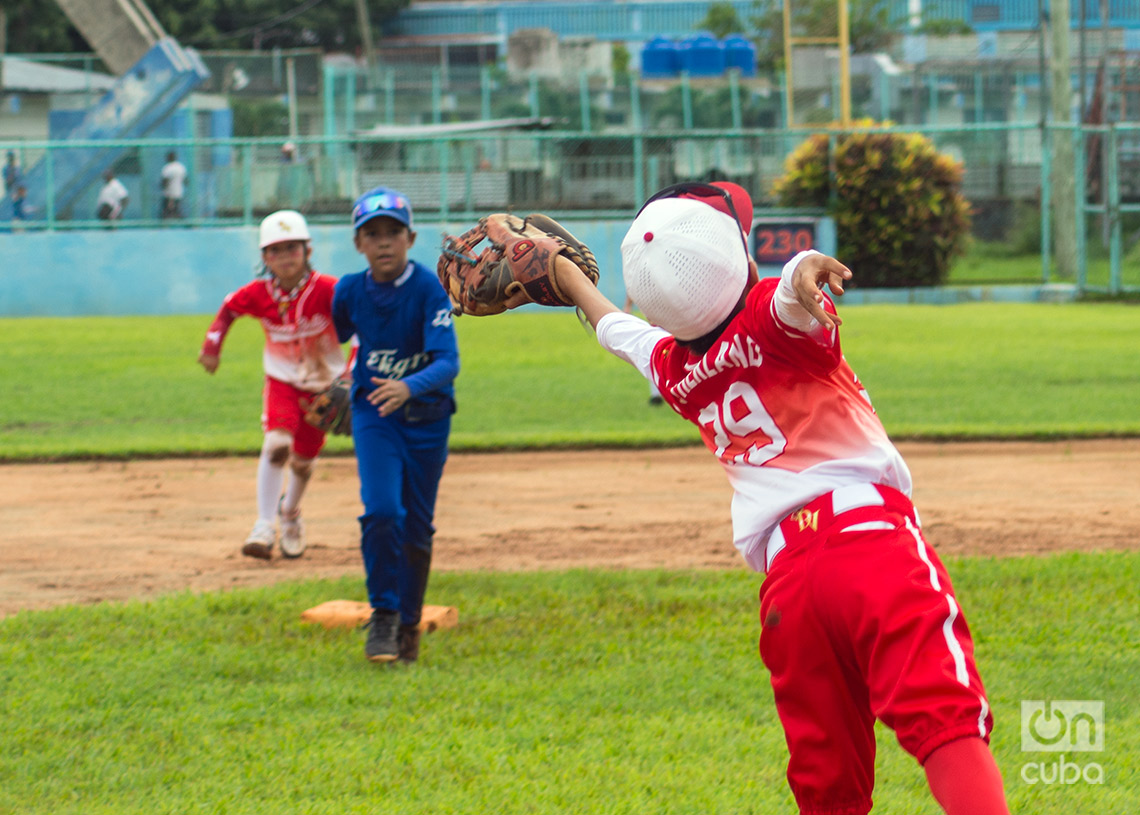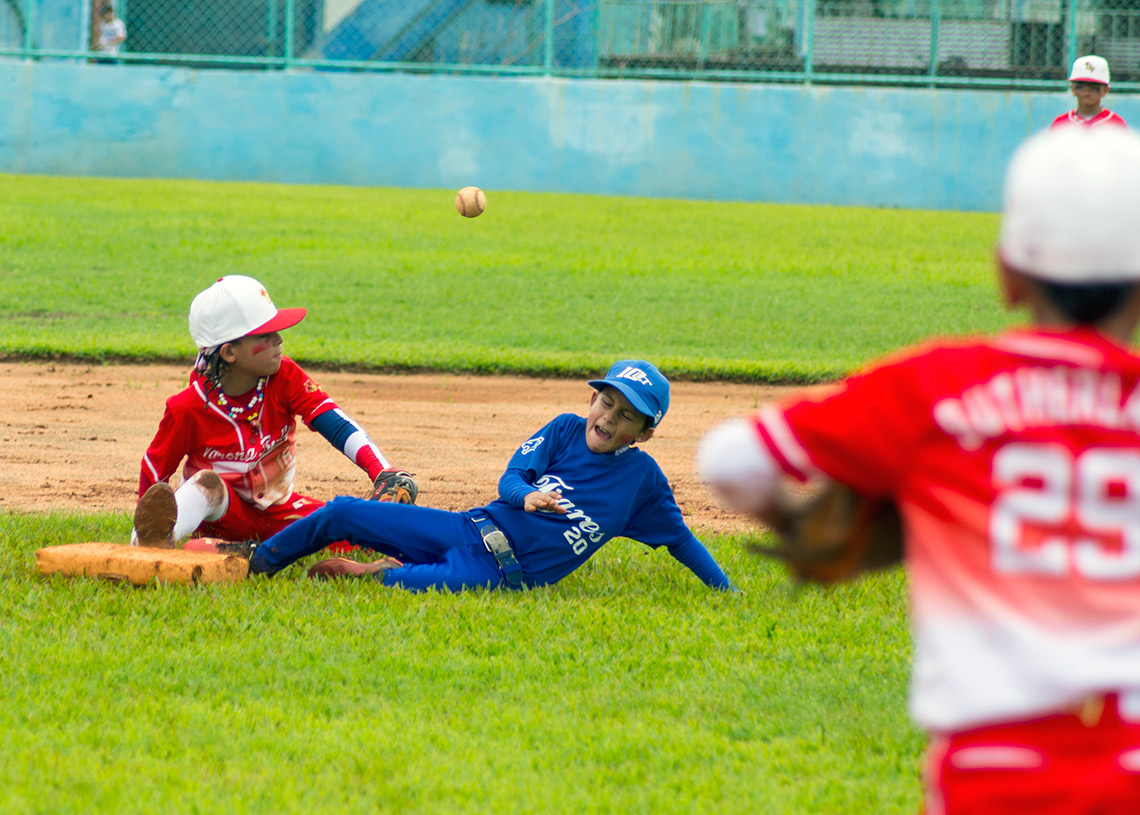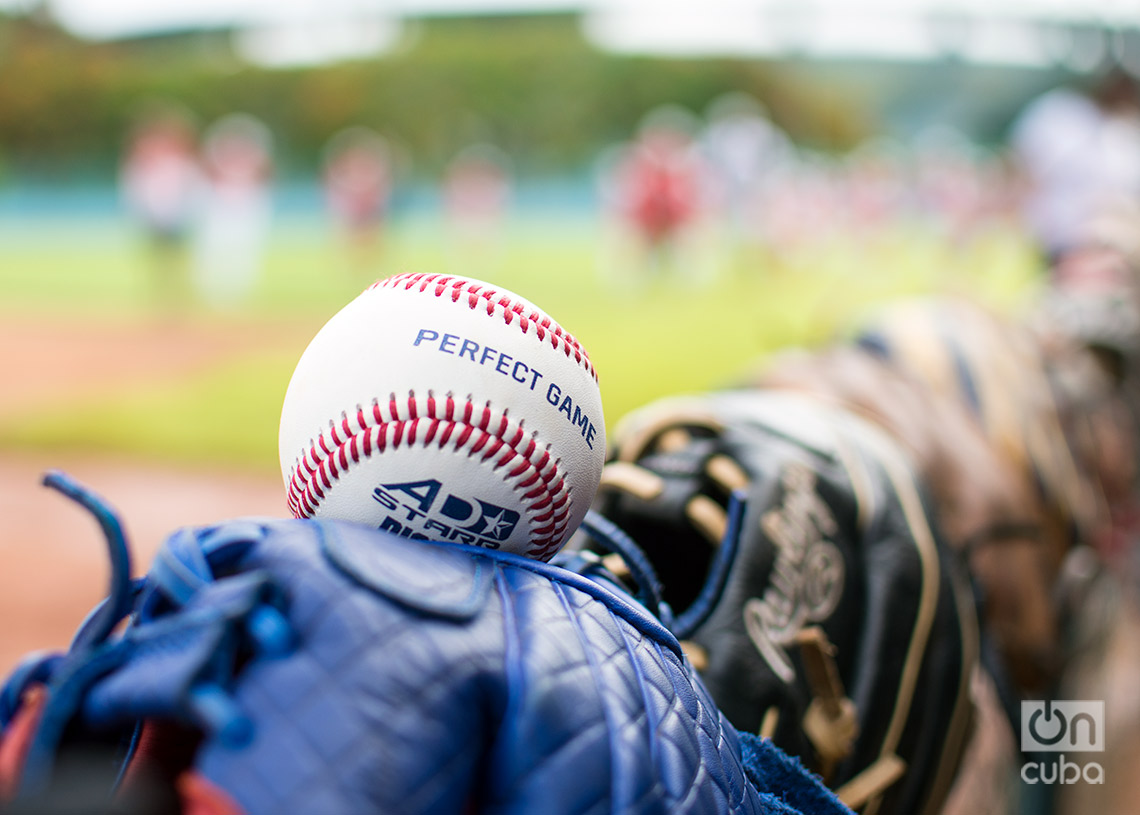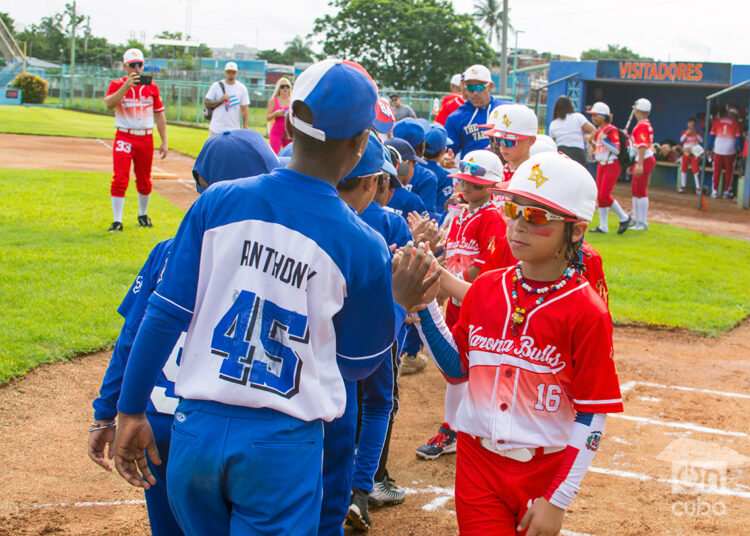Baseball in Cuba is a passion. On any street, square, or park, children manage to build a small stadium. The dream is always the same: to become famous.
For Dayron Varona that dream was fulfilled, here and there. After eight seasons on the island, his departure by sea to the United States also paid off. He reached the Triple A category of the best circuit in the world.
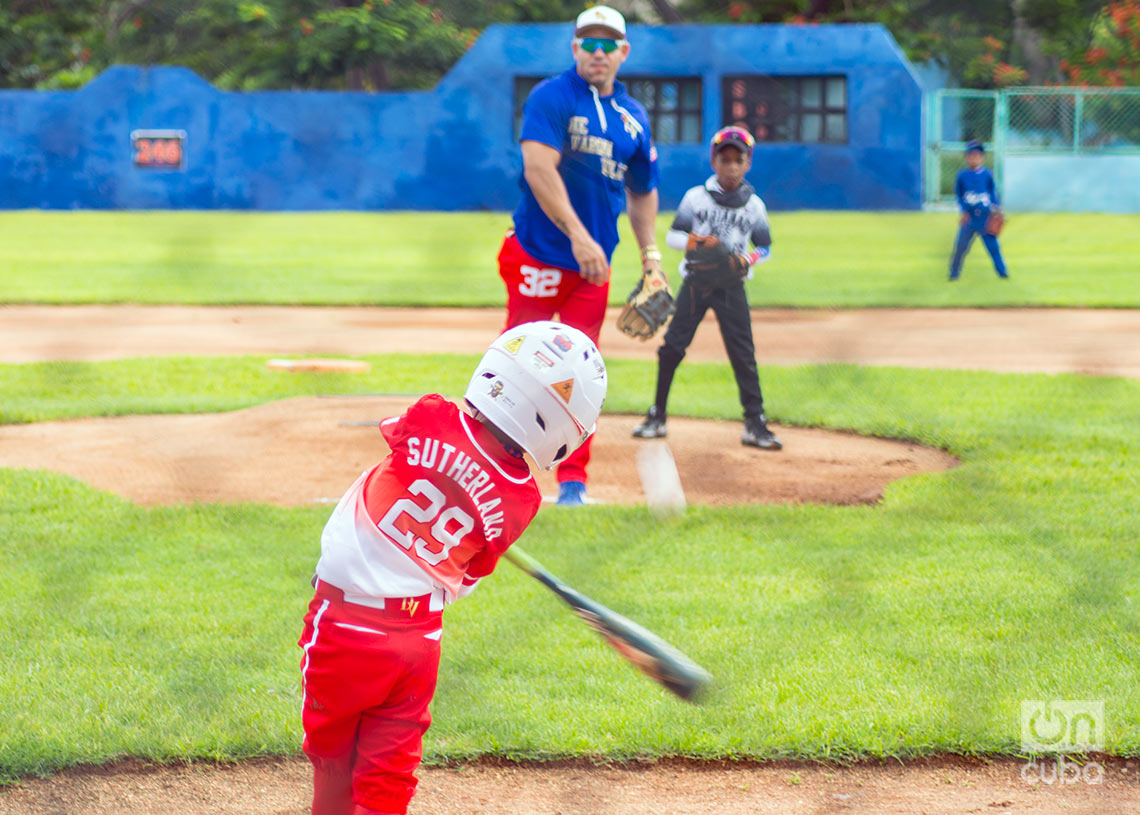
Now, after he retired from active baseball, he has experienced a new stage. He trains children at an academy in Miami and brought his disciples, the Varona Bulls, to Cuba to conduct several exhibition matches with Havana teams in the 7-8, 9-10, and 11-12-year-old categories.
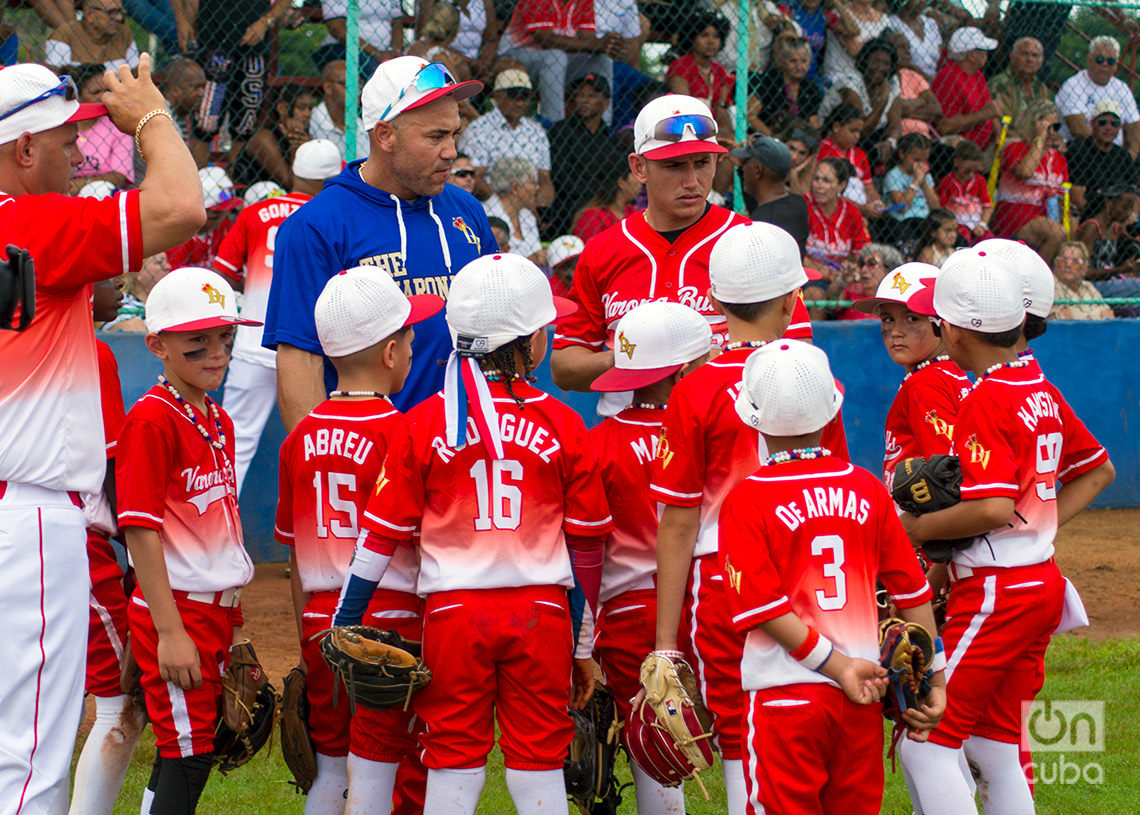
“It’s another dream come true: to be able to return to my country. I think that things are not sought. They just happen. And when you see that you have a chance to do something, you have to take it. Today I’m in Havana. Next time I would like to go to my province, Camagüey,” the former outfielder for the Toros in the Cuban National Series told OnCuba, which, curiously, won his title with Villa Clara.
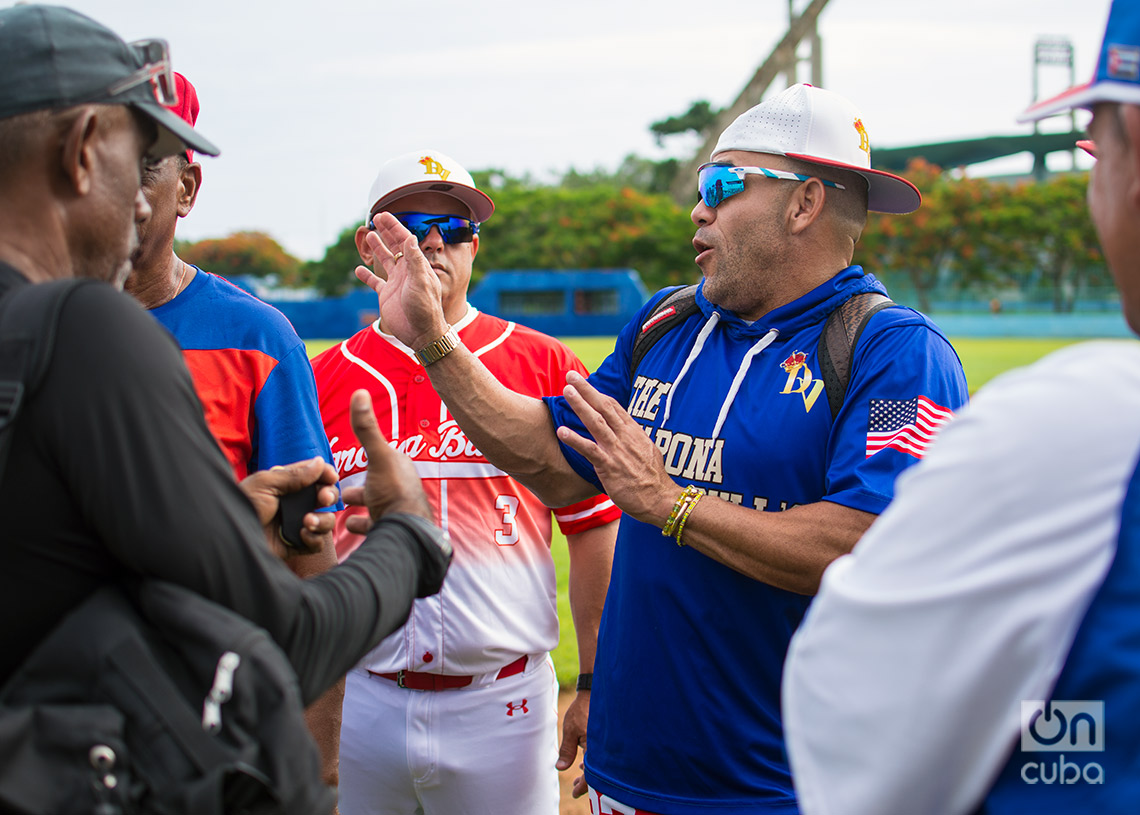
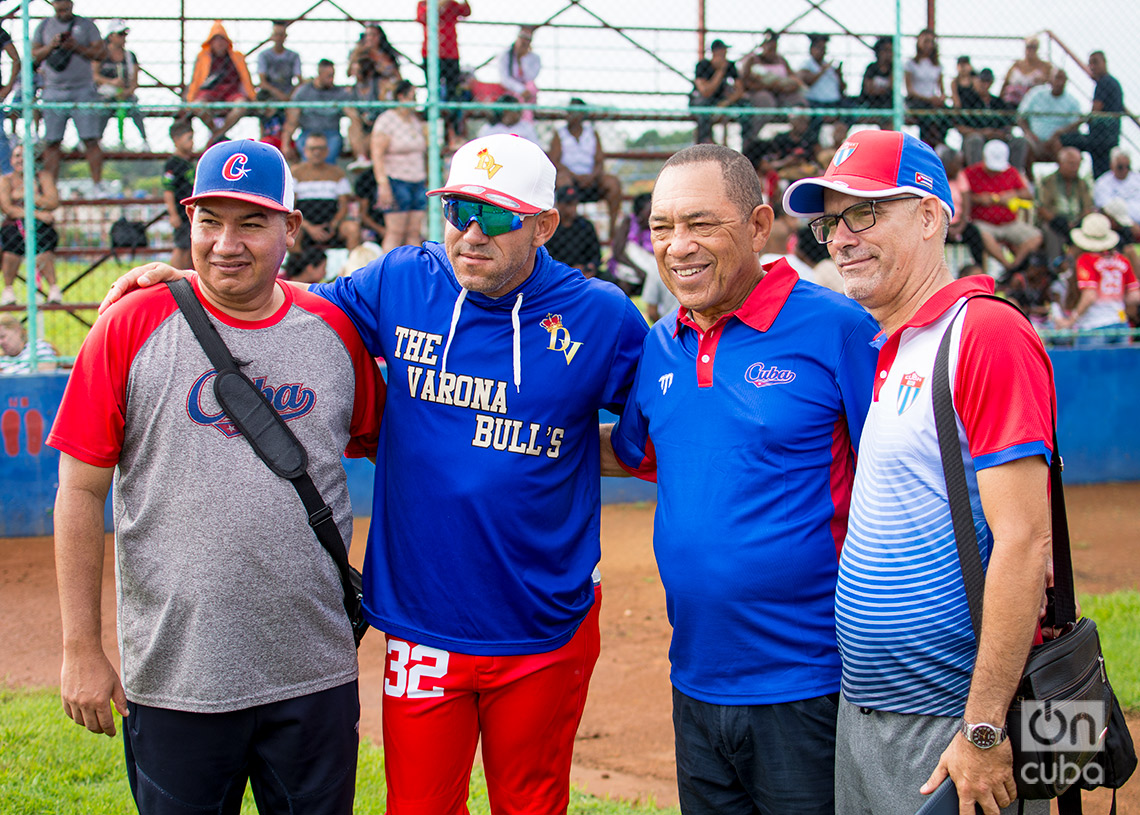
Is everyone happy with their visit?
“I know some aren’t, but I am. I feel comfortable. I’m not a politician, sport is my thing. It’s nice to be able to do this. Anyway, I thank the detractors, thanks to them I’m stronger by the day. I have come with the main objective that the children play ball and get to know my country.”
By the way, his disciples are a mix of nationalities and languages. During training, they spoke in English. But some parents, who packed a section of the narrow stands of the field next to the Ciudad Deportiva, addressed them in Spanish. A clear image of that cosmopolitan city in the south of the United States.
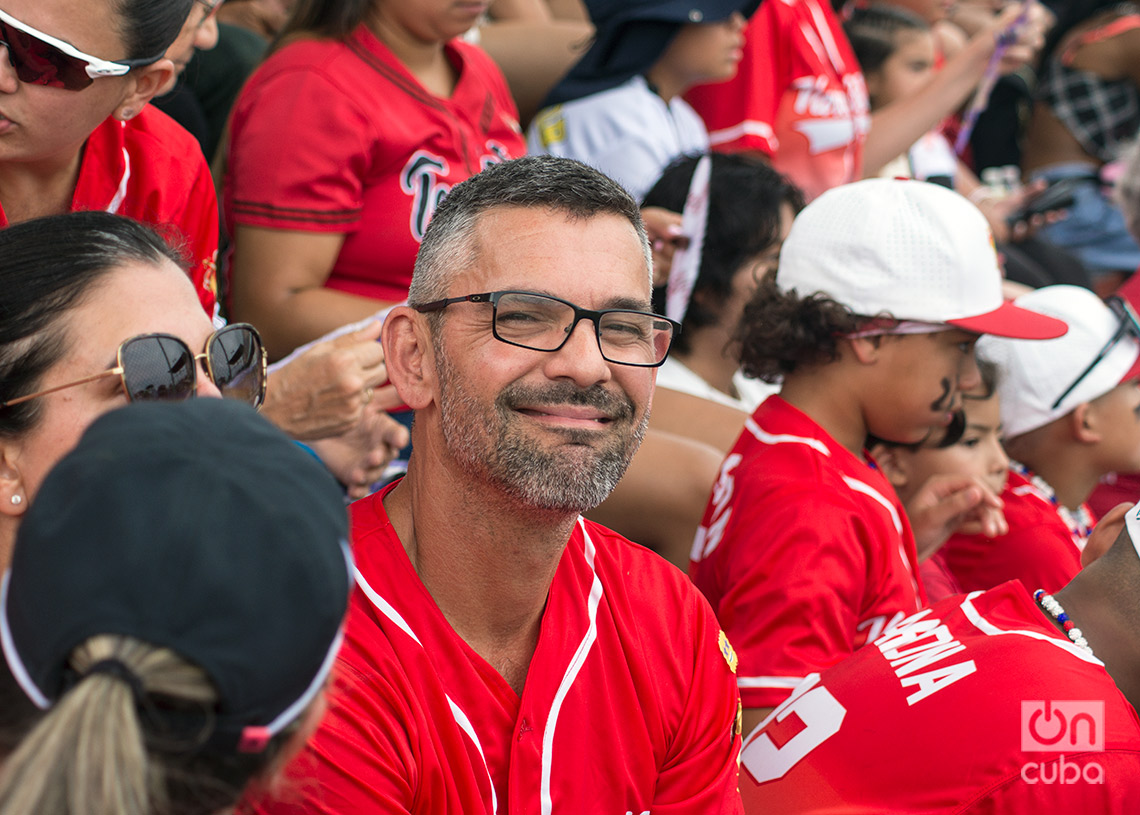
Two years ago he tried to return as an athlete to the National Series and did not succeed.
“I wanted to do it. Wear the colors of Camagüey again. Everything was left in words. I never started the process. I decided not to before starting the process. I thought better of it and understood that it was time to stop playing.”
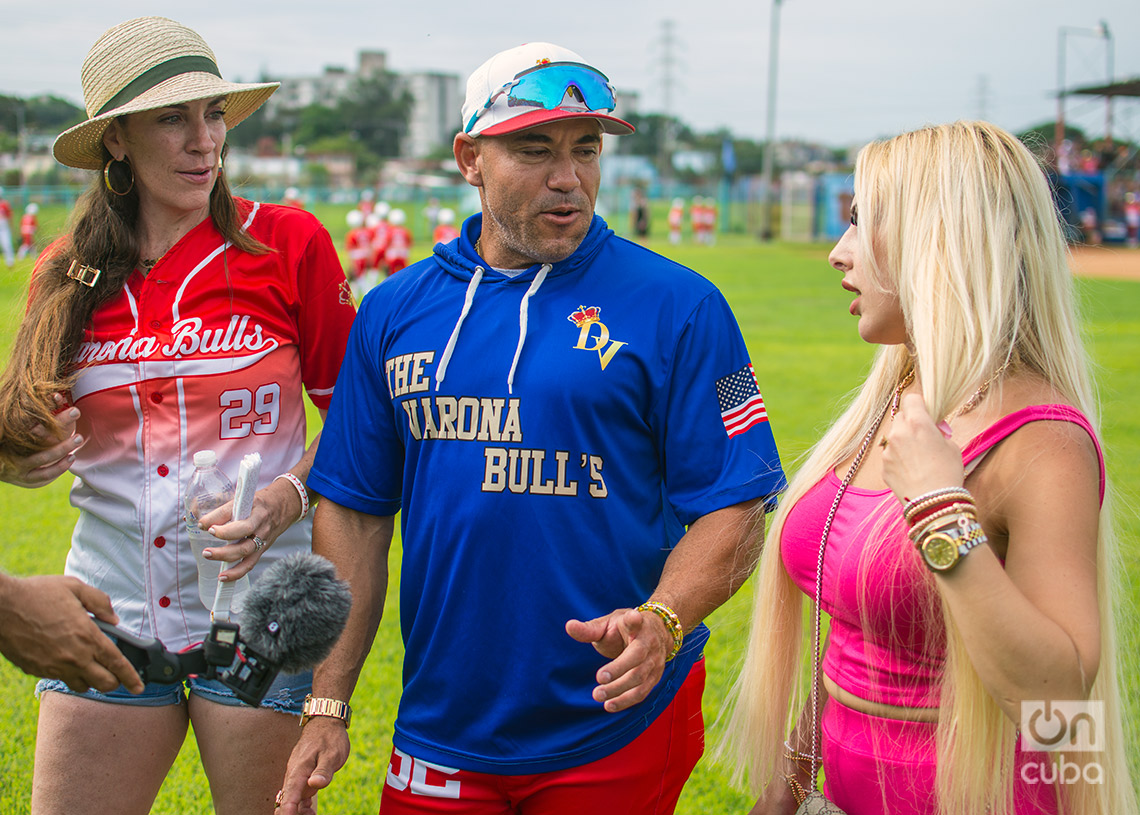
Do you still follow Cuban baseball?
“Neither the one here nor the one there. I don’t like to see it. My thing is to be on the field. Trying to do things well. I have been working with children for almost four years. I didn’t want anyone else to tell me what to do, that’s why I started managing. Since then I haven’t seen another baseball game other than this one.”
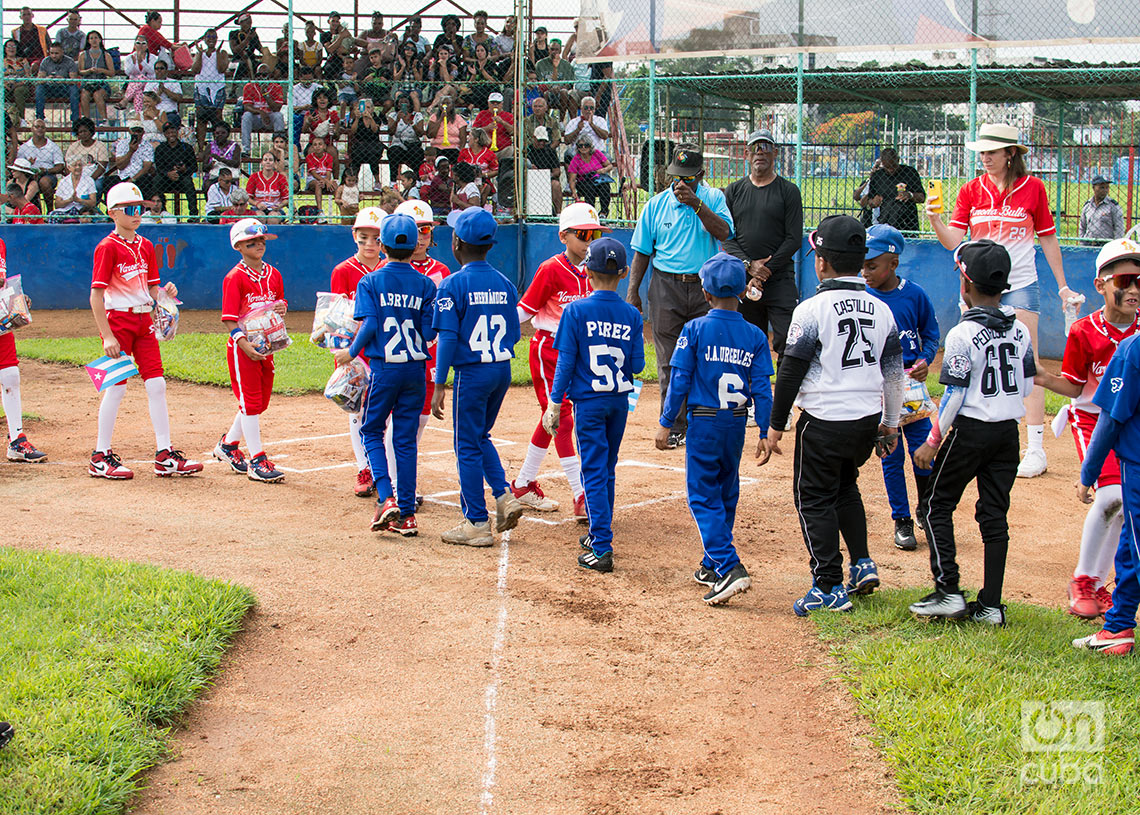
Between 2007 and 2014 — his stage in Cuba — Dayron Varona accumulated an average of 307, hit 38 home runs, and drove in 196 runs. However, many remember him best for having made history when he visited us as part of the Tampa Bay Rays team since he was the first born on the island to return wearing a uniform of a U.S. franchise after 1959.
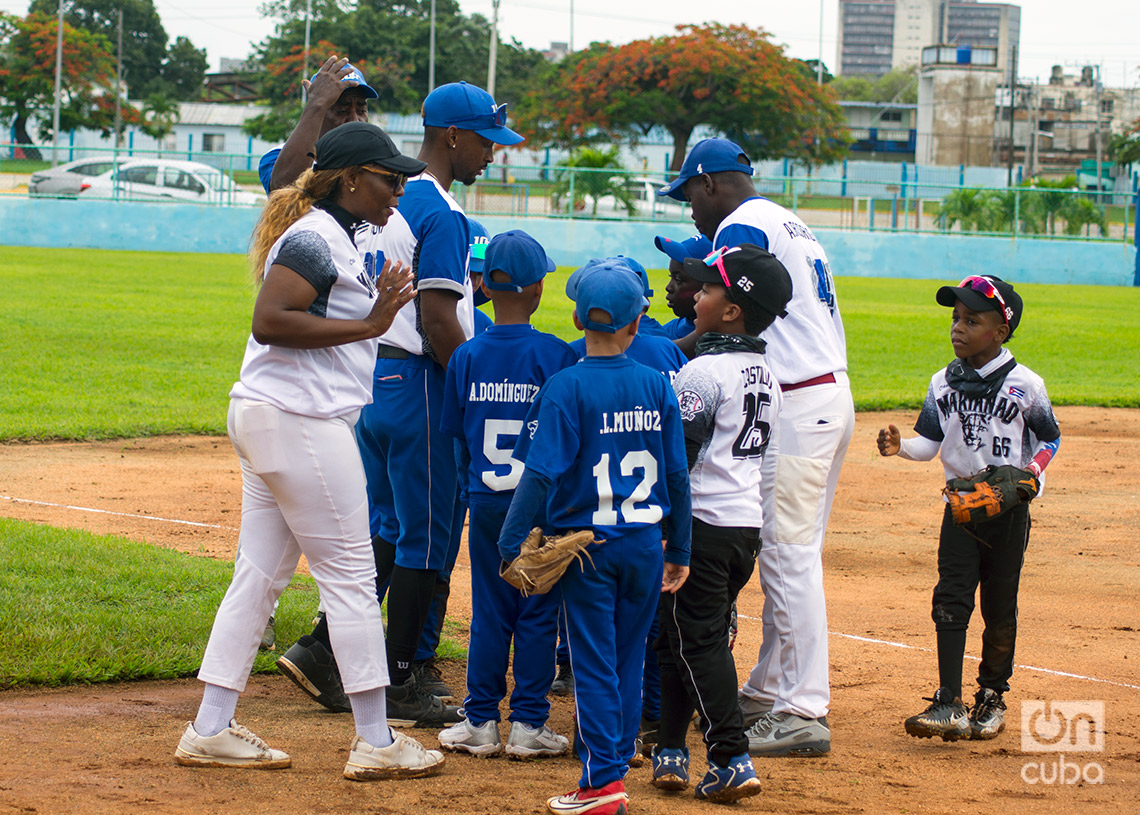
That afternoon in March 2016, the then-president of the United States, Barack Obama, was also at the Latino Americano Stadium. It was during the brief thaw in relations between both countries. A lot of water has gone under the bridge since then. But this new rapprochement, bridging the gap, persists over time with the same flavor of the “forbidden.”
It has just been news that Cuba is not invited to the next Caribbean Series, Mexicali 2025. We did not do it this year in Miami either. We are losing ground beyond our borders. Our level is lower than that of most nations in the area with a baseball tradition. Even so, the desire of children and young people to develop at the base continues to be intense in particular cases.
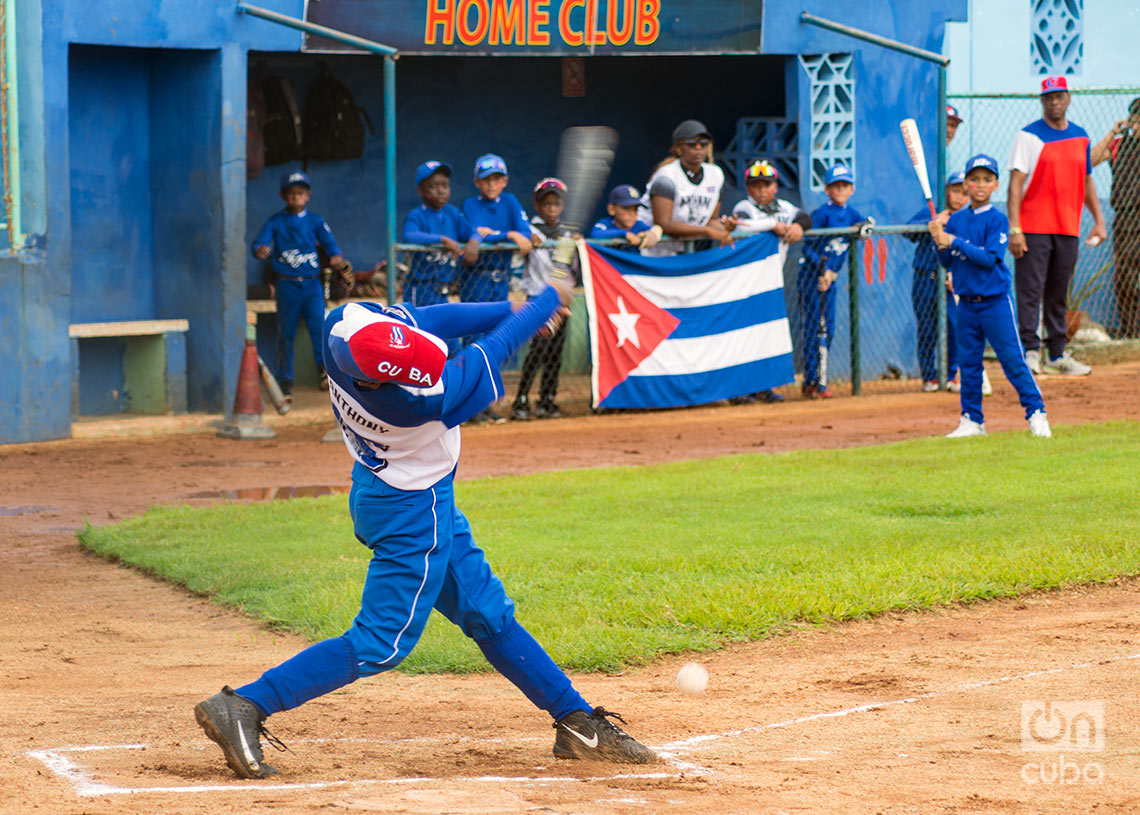
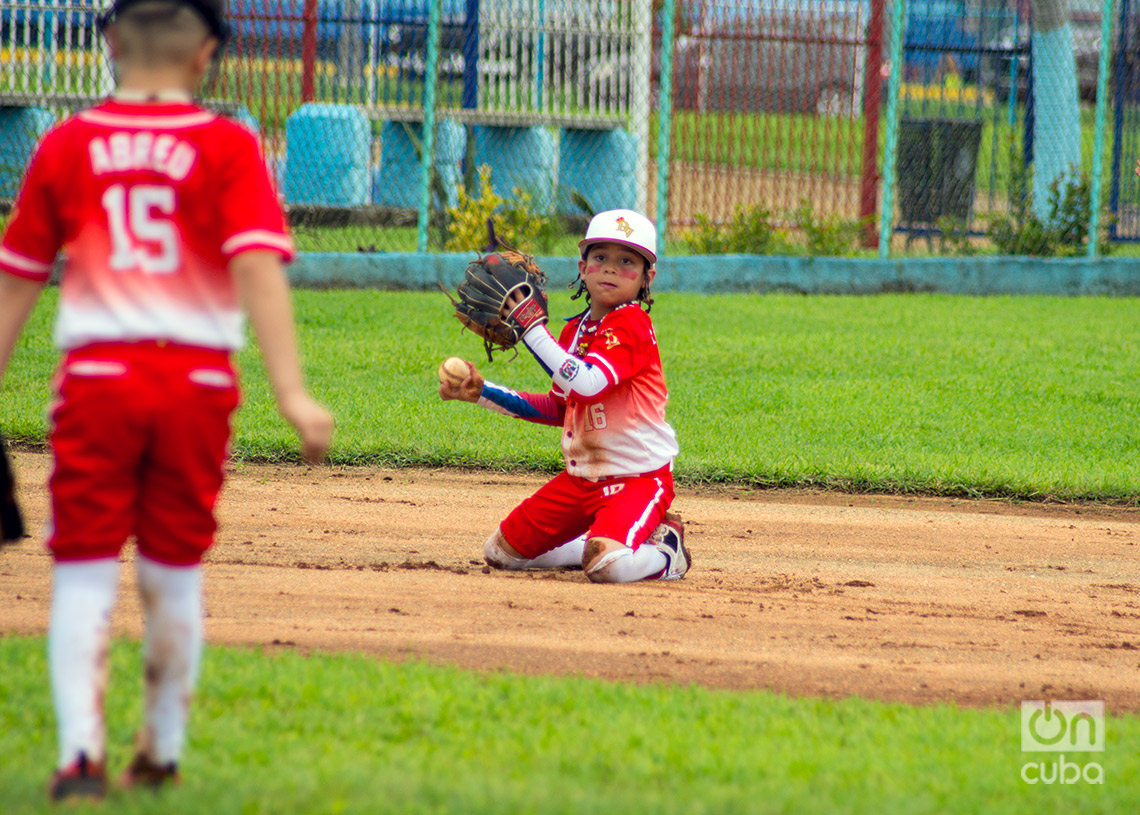
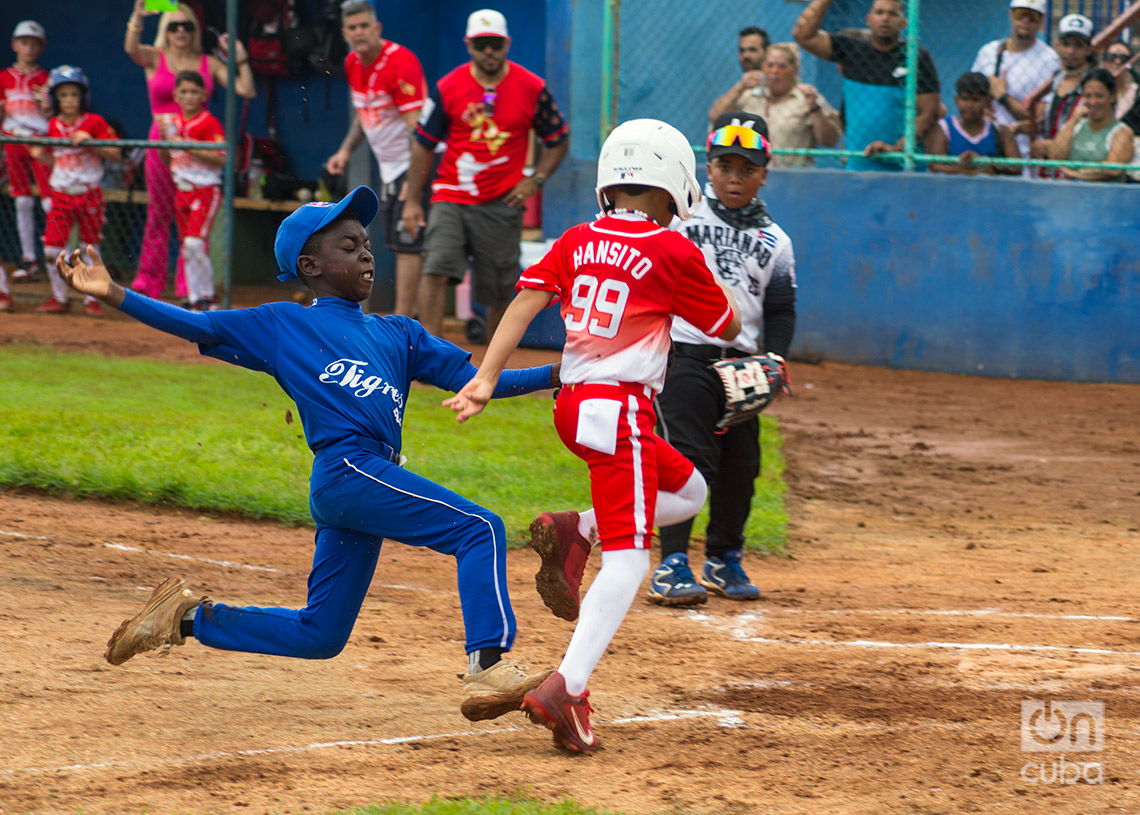
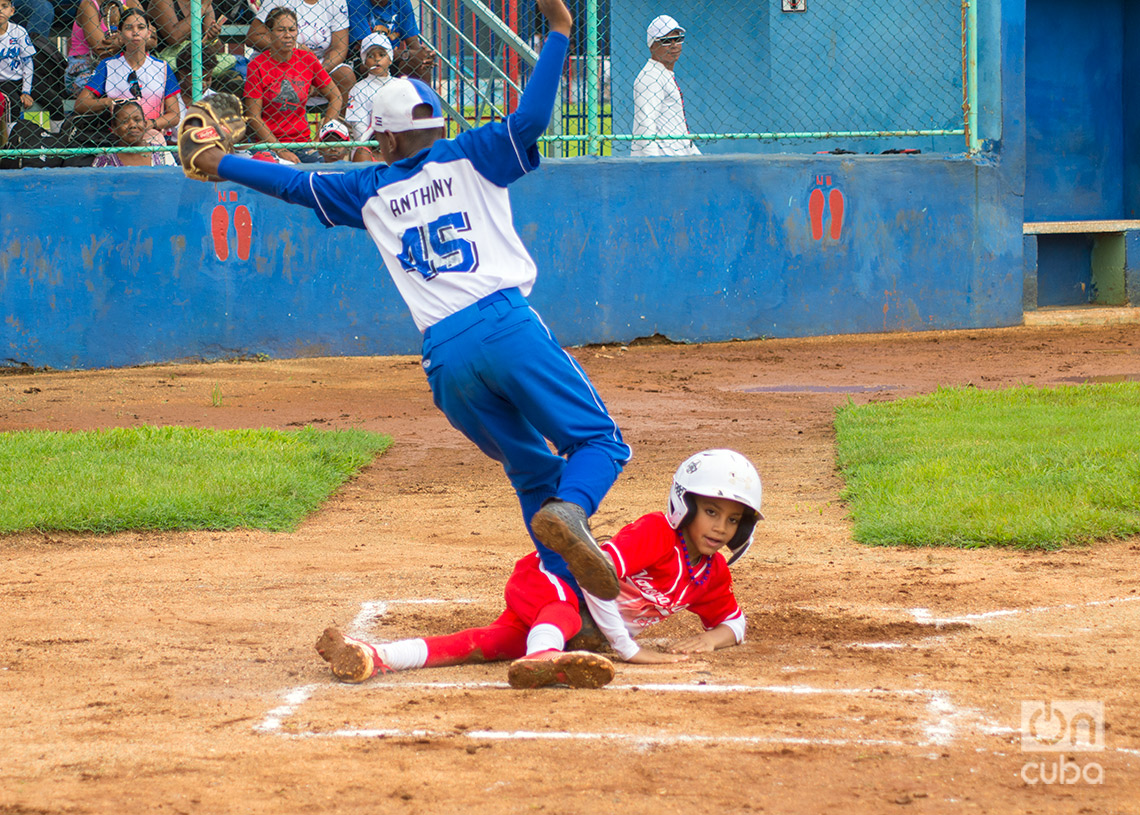
***
Lilian Vallona is the mother of Liovis Ledian Muñoz, seven years old, starting second baseman for the 10 de Octubre team, the first to face the visitors led by Dayron Varona. “Playing baseball involves a lot of sacrifice. It’s time, money, effort. You have to practically live for this. But it’s worth it. It’s nice to dream. I hope my son goes far.”
Oldanier Ochandía thinks similarly. Father of Neymar, the name of a Brazilian soccer player, now written on the back of a possible future third baseman for Cuban teams, or who knows. “You have to sweat a lot. It is a very expensive sport. The shoes cost 7,000 pesos, the glove 8,000, and the suit 50 USD. But you do whatever it takes for your children. Then it comforts you to see things like this happen. Playing against a team that comes from abroad. This is how they develop more. The dream cannot be other than reaching the Major Leagues.”
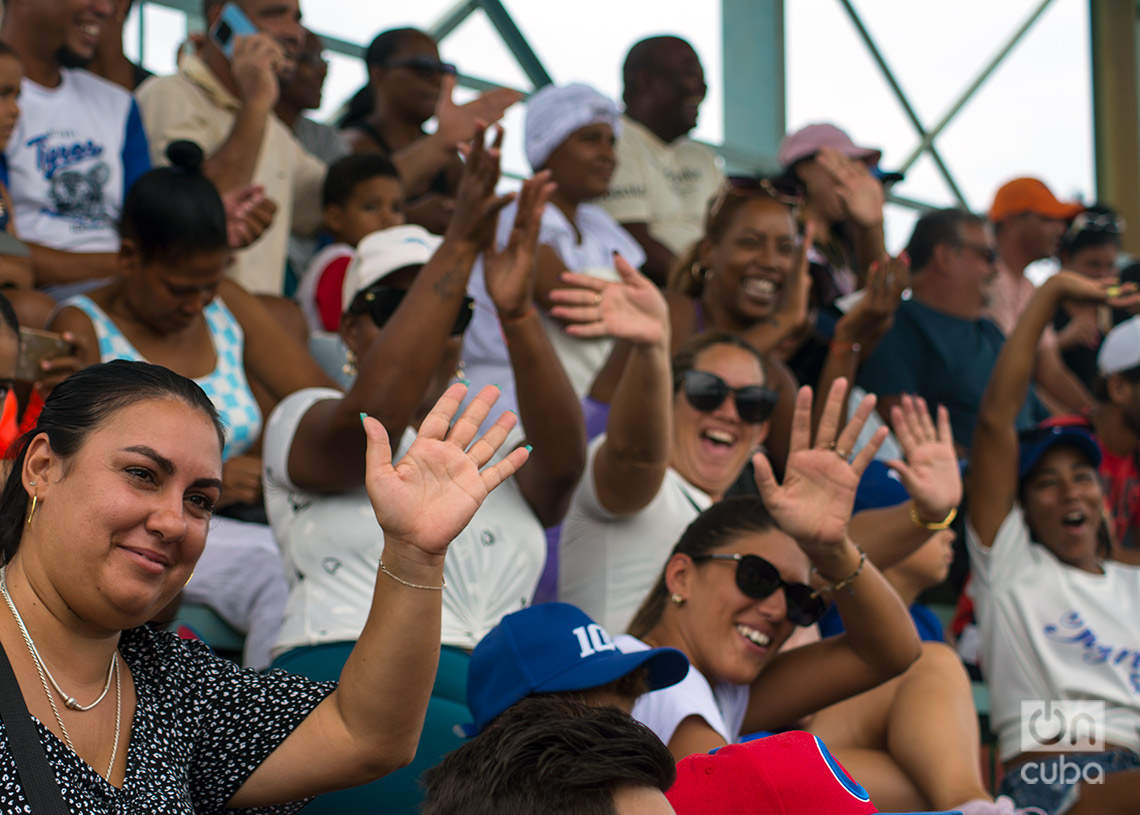
Evelyn Varela has become a “self-employed” scorer. She keeps the information about her son, shortstop Antony Bryan Álvarez, and the 10 de Octubre team in a notebook. “I like to have statistics with me. That way I’m on top of everything. But the most difficult thing is undoubtedly the economic part. Many people don’t have this possibility. Thank God the child’s grandmother lives in the United States and with the little money she sends we can get around it.”
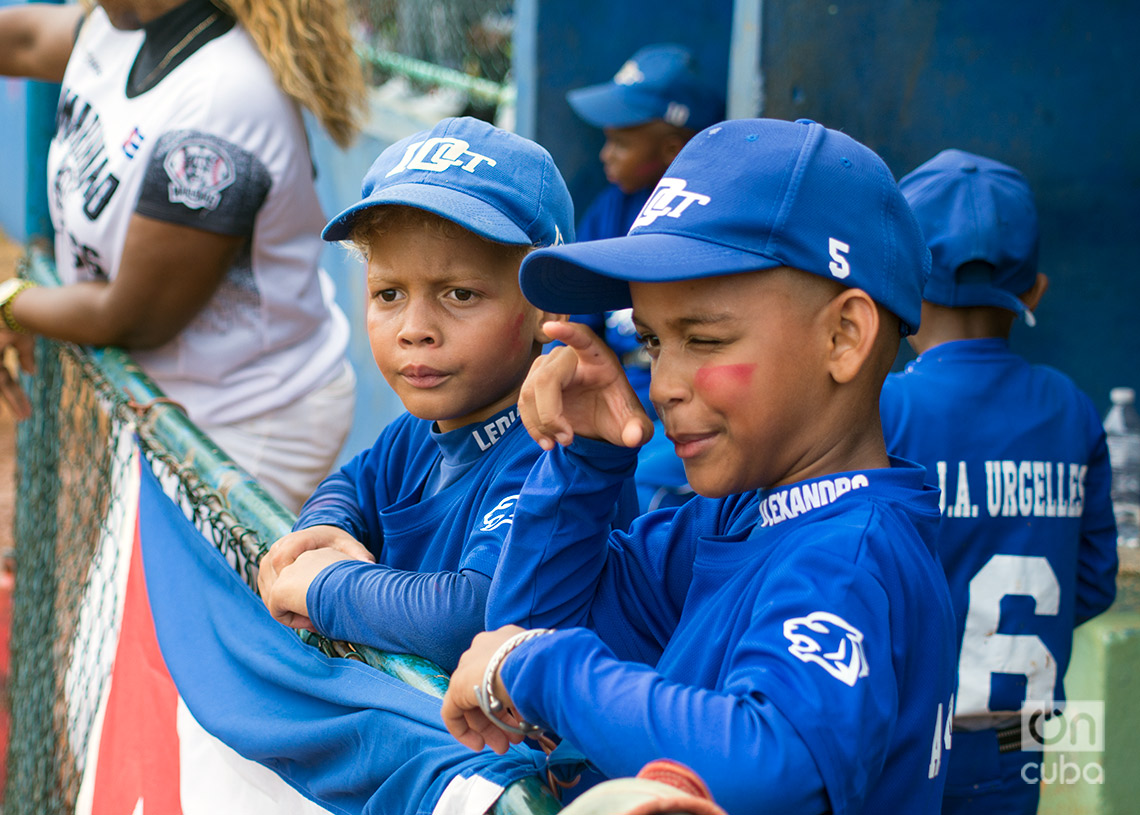
On the first base side sat the parents of the U.S. children. Manuel Bolaños is one of them. American, he roots for the Marlins, but his parents were born in Cuba. He doesn’t know our baseball. It’s his first time here, as well as for his son Blake Bolaños, 9 years old. In Spanish, but with a marked Anglo-Saxon accent, he told OnCuba that he felt very happy. “It’s a nice feeling. I have Cuban blood. Today I fulfilled a dream. We’re having a wonderful time. The people here are very kind.”
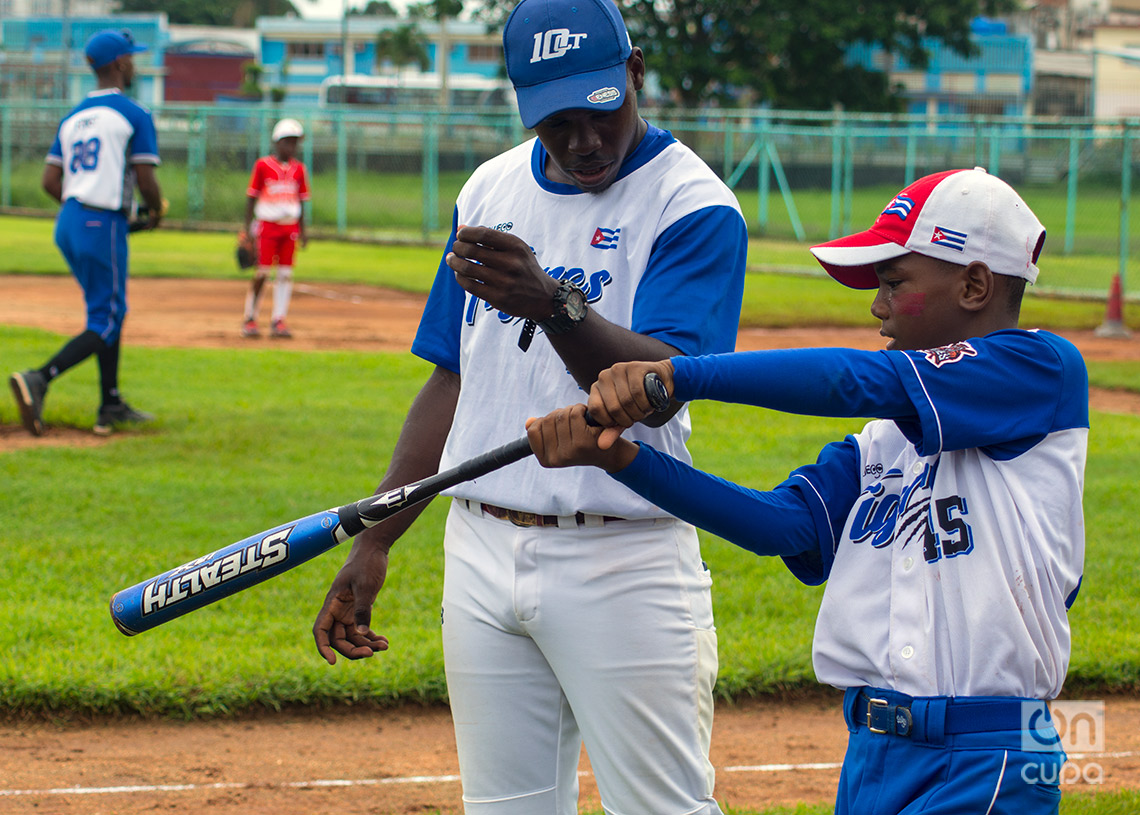
The truth is that this Saturday, under a cloudy sky, we all took off our caps equally and the two national anthems were played.
Before starting the game, the U.S. children gave some bags full of sweets to the Cubans. The first ball was thrown and the atmosphere became familiar. Between bugles, cheers, and whistles, ties were woven that the sport knows very well how to adjust.
